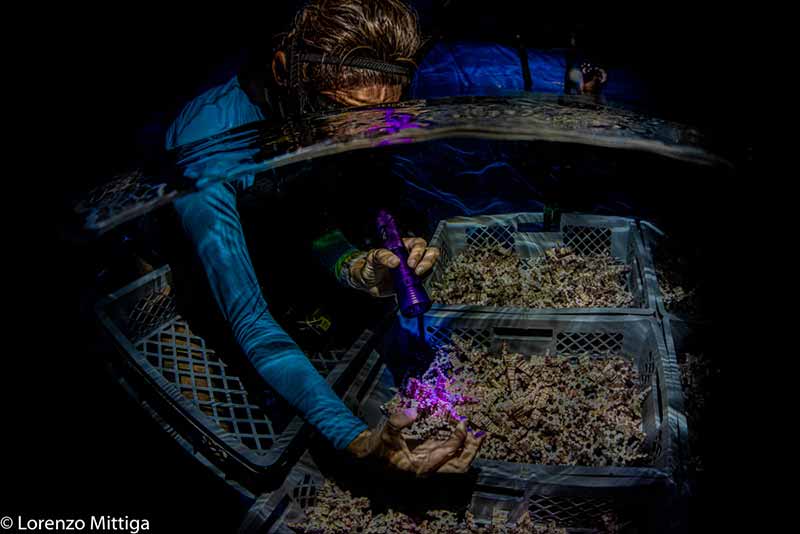RRFB continues to adjust its restoration strategy.
Reef Renewal Foundation Bonaire (RRFB) has intensified its commitment to building reef resilience in response to the rapid spread of diseases, such as Stony Coral Tissue Loss Disease (SCTLD), and increasingly adverse environmental conditions caused by climate change.
Since the confirmation of SCTLD on Bonaire’s reefs in March 2023, STINAPA has implemented several measures to mitigate its spread, including limiting access to affected reef areas and applying antibiotic treatments on affected corals.
Focusing on significantly impacted coral species.
As part of an integrated conservation and restoration strategy, RRFB is refocusing its efforts on bolstering the populations of nine coral species that the disease has significantly impacted. This strategic shift will be executed in two fundamental ways:
- Increasing Abundance of Resilient Coral Colonies: Reef Renewal Bonaire has spent the last two months identifying and selecting coral colonies in severely impacted areas that have displayed a certain level of “resistance.” These colonies will be brought to the nursery for propagation and subsequently outplanted to the reef.
- Enhancing Genetic Diversity: The organization assists coral reproduction and genetic recombination using larval propagation to increase the diversity and strength of existing coral populations.
Francesca Virdis, the Chief Operating Officer of RRFB stated, “Over the past few months, we’ve surveyed highly affected ‘red zone’ areas to monitor and map coral colonies of various species. After identifying colonies which have exhibited “resistance” to the disease thus far, we are scheduled to begin propagating them by the end of this month. Furthermore, during the May spawning event of grooved brain coral (Diploria labyrinthiformis), another highly susceptible species, we reared hundreds of thousands of coral larvae in our floating ‘CRIB’ and successfully outplanted more than 25,000 young settlers onto the reef. Each of these settlers possesses a unique genetic makeup, equipping them with enhanced resilience to ongoing diseases and other stressors.”
Establishing an on-land nursery facility.
Virdis emphasized the importance of establishing an on-land nursery facility to ensure long-term project continuity and reinforce existing larval propagation efforts. She acknowledged that while preservation and restoration work is ongoing underwater, installing a dedicated facility on land is crucial for project development.
“For the past four years, RRFB has cultivated hundreds of thousands of coral larvae by transforming a small office room into a temporary, makeshift wet lab. However, limited space and lack of aquarium tanks have become significant constraints that hinder our progress,” stated Virdis. “This facility will not only serve as an educational and training resource, but it will also foster fruitful research collaborations. Most importantly, it will enable us to implement a targeted and comprehensive coral restoration strategy that will bolster the resilience of coral populations in the face of infectious diseases and other serious threats posed by climate change.”
What else is new with RRFB?
Soon, RRFB will be monitoring the outplanted elkhorn colonies during spawning. Elkhorn corals (Acropora palmata) are true enigmas, and their spawning behavior remains a bit of a mystery here on Bonaire. They will be closely observing the elkhorn corals and hopefully collecting their gametes for 6 consecutive nights.
Additionally, two floating coral nurseries will be deployed at Oil Slick Leap. These uniquely designed nurseries will be home to Acropora coral larvae until they are ready to swim, settle, and continue to grow into mature colonies. Please ensure you stay at least 2 meters away from these structures and avoid swimming or diving under them, as air bubbles or excess wave action could kill the larvae. Boaters should stay further away and reduce speed in the area to minimize waves and chemicals around the nursery.
With your help, RRFB can ensure that the coral larvae have the best possible chance of survival and settlement!












